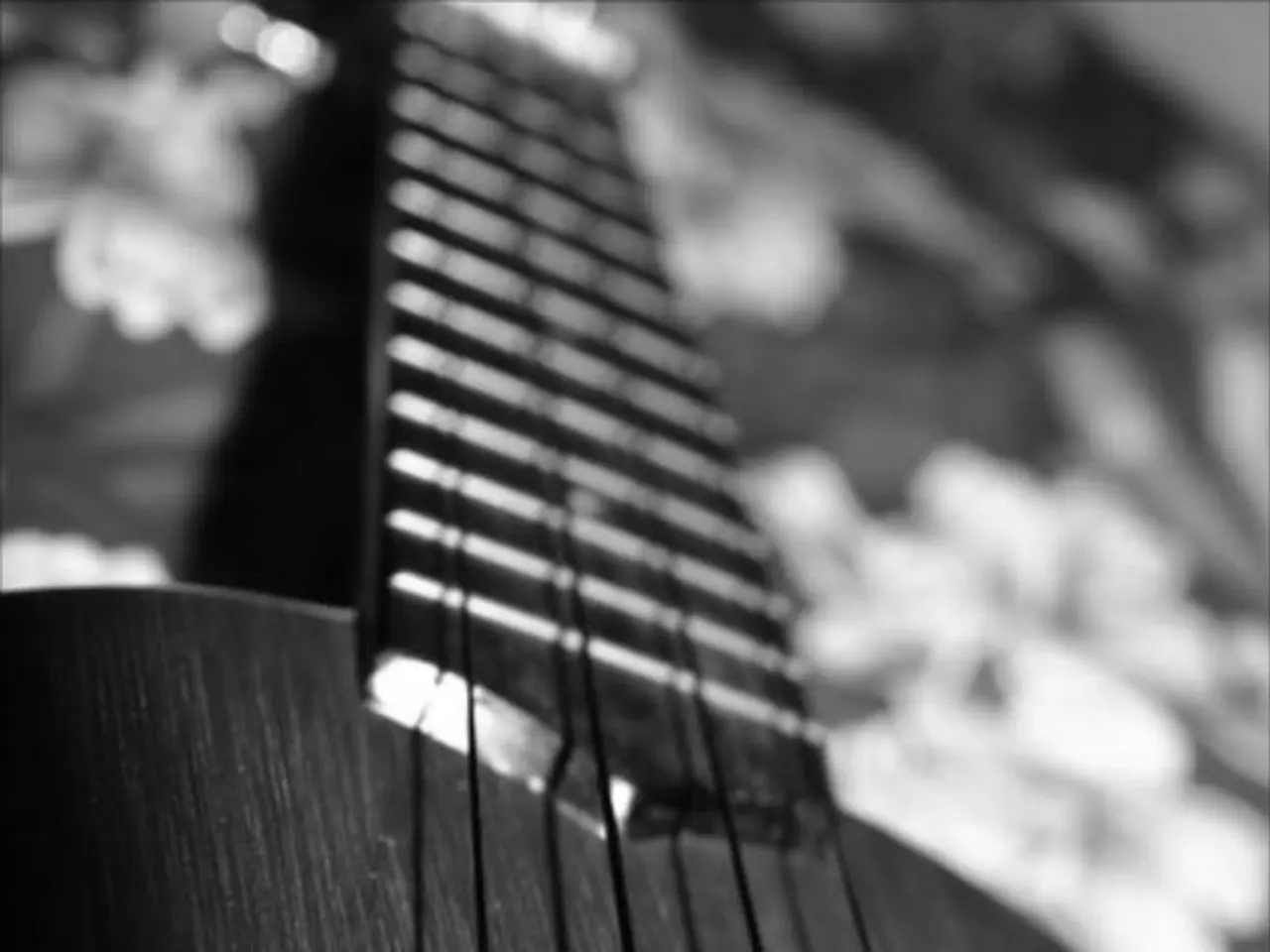AI Applications Can Enhance Human Creativity in Music, According to 'There I Ruined It' Developer
Dustin Ballard, the mastermind behind the YouTube channel "There I Ruined It," recently delivered a thought-provoking TED talk on the impact of AI on music and musicians' livelihoods. In his presentation, Ballard advocates for a nuanced view of AI, seeing it as a tool that can amplify human creativity rather than replace musicians.
Comparing AI to technological breakthroughs like the advent of sampling in the 1980s, the launch of the synthesizer in the late 1960s, and the invention of the phonograph (a record player), Ballard argues that AI expands artistic possibilities by providing access to new voices, instruments, and sounds.
Ballard proposes three ethical guardrails for AI music use:
- Avoiding deception: Artists should disclose AI involvement if the output could be mistaken for the real thing.
- Artistic intent: Mass-produced AI music without meaningful intent is not art.
- Impact on musicians: Considering how AI affects careers and creative expression, aiming to contribute rather than just copy.
Ballard believes that AI should be seen as a creativity multiplier that adds tools and options to musicians’ palettes while requiring responsible, ethical use to protect artistic authenticity and livelihoods.
He points out that some established artists like Snoop Dogg embracing AI mashups validates the notion that AI can create new artistic contributions instead of merely duplicating. Regarding livelihoods, Ballard notes that many musicians “ruined” by his AI parodies often come to embrace and share those AI-generated variations, suggesting that AI can coexist with and even benefit human artists by sparking creativity, new styles, and sounds not imaginable before.
One of Ballard's most notable projects is his YouTube channel "There I Ruin It," where he regularly uses AI to "lovingly destroy" favorite records. For instance, he has created an AI version of 1950s country singer Conway Twitty "singing" 50 Cent's In Da Club and a Red Hot Chili Peppers shopping list where Antony Kiedis appears to be rattling off grocery items as the band plays Can't Stop.
Despite some criticism, Ballard's work has garnered attention and appreciation from the music community. His TED talk can be accessed on the TED website, and his YouTube channel can be found on YouTube.
[1] Ballard, Dustin. "The Creative Potential of AI in Music." TED Talk, TED, 2021. [2] Ballard, Dustin. "AI and the Future of Music." Wired, 2021. [3] Ballard, Dustin. "There I Ruin It." YouTube, 2019-present. [4] Ballard, Dustin. "How AI Can Benefit Human Artists." Medium, 2021. [5] Ballard, Dustin. "The Ethics of AI in Music." TechCrunch, 2021.
Technology and artificial-intelligence are pivotal in the evolution of music, as Dustin Ballard, the creator of the YouTube channel "There I Ruined It," elucidates in his TED talk and various written works. In these discussions, Ballard emphasizes the transformative potential of AI, viewing it as a means to augment human creativity and expand artistic possibilities by introducing novel voices, instruments, and sounds.




